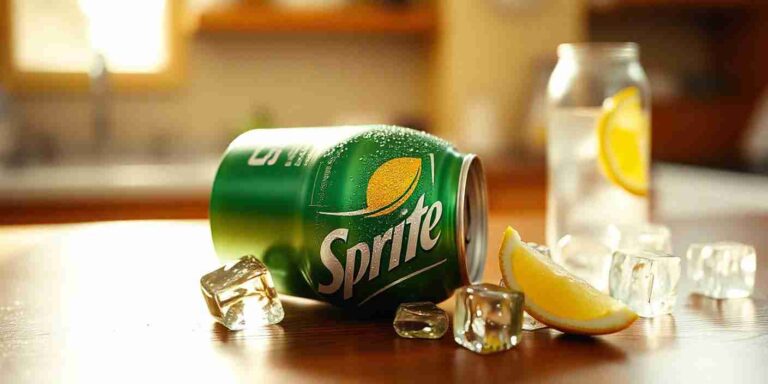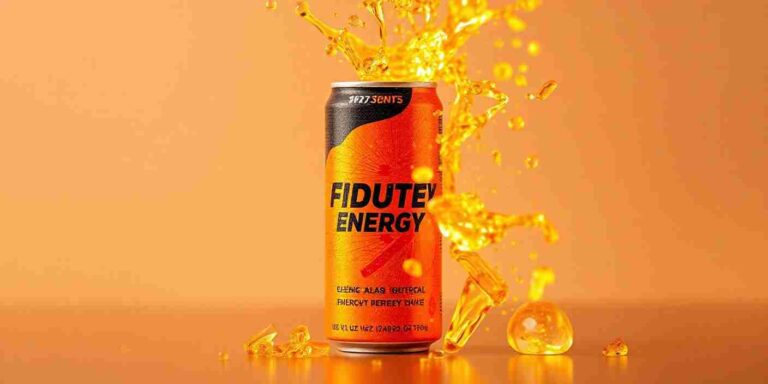Is Mio Bad For You? Mio Water Enhancer Health Facts!
Is Mio Bad For You? Mio isn’t inherently bad for you, but it’s essential to understand what you’re consuming. This popular liquid water enhancer packs a punch of flavor without calories, making it an appealing choice for many looking to spice up their hydration.
However, the ingredients can raise some eyebrows. While Mio contains artificial sweeteners and additives that may not sit well with everyone, moderation is key.
If you’re watching your sugar intake or trying to avoid certain chemicals, it’s crucial to weigh the pros and cons.
Key Takeaways
- Mio is calorie-free: It enhances water flavor without adding calories or sugars, making it appealing for those looking to improve hydration while managing caloric intake.
- Ingredients matter: Mio contains artificial sweeteners like sucralose and acesulfame potassium, which may have potential health risks that warrant caution.
- Moderation is key: While Mio can be part of a healthy diet, it’s important to consume it in moderation due to ongoing debates about the long-term effects of its ingredients.
- Know your alternatives: Natural options such as infused water, herbal teas, and coconut water provide flavorful hydration without artificial additives.
- Listen to personal experiences: Some users report negative reactions to Mio, highlighting the importance of being mindful of how your body responds to certain products.
- Expert opinions vary: Health professionals acknowledge the benefits of increased water intake with Mio but express concerns about reliance on artificial flavors for hydration.
Overview Of Mio
MiO is a liquid water enhancer designed to make plain water more enjoyable. It comes in various types, each serving different needs. The main types include MiO Original, MiO Vitamins, MiO Energy, and MiO Sport.
- MiO Original: This variant uses artificial sweeteners like sucralose and acesulfame potassium to enhance flavor without calories.
- MiO Vitamins: This version includes essential B vitamins such as B3, B6, and B12. These vitamins can support energy levels and overall health.
- MiO Energy: MiO Energy contains caffeine for an energy boost. It’s ideal for those needing extra alertness during the day or before workouts.
- MiO Sport: This type focuses on hydration for active lifestyles by replenishing electrolytes lost during exercise.
Ingredients of Concern
While MiO offers flavorful options, it also contains ingredients that may raise concerns for some consumers. The primary concern involves its use of artificial sweeteners.
Though these ingredients are generally recognized as safe (GRAS) by the FDA, there are ongoing debates about their long-term effects on health.
For example:
- Some studies suggest that excessive consumption of artificial sweeteners may impact metabolic processes.
- Individuals with specific dietary restrictions might prefer alternatives without these additives.
Understanding what’s in your drink helps you make informed choices about your hydration habits. Always read labels carefully to ensure products align with your health goals.
Nutritional Content Of Mio
Mio offers a calorie-free and sugar-free option for those seeking to enhance their water intake. Understanding its nutritional content is important for making informed choices.
Ingredients Breakdown
Mio includes artificial sweeteners such as sucralose, acesulfame potassium, and stevia extract. The FDA recognizes these ingredients as generally safe (GRAS).
However, ongoing studies examine their long-term health effects on consumers. It’s crucial to check ingredient labels if you’re concerned about artificial additives.
Calories And Sugars
Mio stands out as a calorie-free and sugar-free beverage enhancer. This makes it an appealing choice compared to traditional sugary drinks that can contain high amounts of calories and sugars.
By using Mio, you can add flavor without increasing your caloric intake or consuming added sugars, which aligns with healthier hydration practices.
Health Impacts Of Mio
Mio, a popular liquid flavoring mix, raises health concerns due to its ingredients. Understanding these impacts helps you make informed choices.
Artificial Sweeteners
Sucralose, a key ingredient in Mio, is generally recognized as safe (GRAS) by the FDA. However, some studies suggest it may cause DNA damage.
Acesulfame Potassium, another sweetener, is linked to an increased risk of serious health issues like cancer, cardiovascular disease, and diabetes.
Stevia Extract, also approved by the FDA, can affect blood sugar levels and disrupt your gut microbiome based on certain research findings.
Potential Allergens
Certain artificial colors in Mio can trigger allergic reactions. For example:
- Red 40: Contains benzidine and has associations with bowel diseases and ADHD.
- Yellow 5: Also linked to DNA damage in blood cells.
Monitoring these ingredients helps ensure your safety while using Mio products. Being aware of these potential allergens allows you to choose wisely for your health needs.
Personal Experiences And Opinions
Some users share their experiences with Mio that raise concerns about its safety. Many report negative reactions, such as explosive diarrhea and unusual bowel movements. They often attribute these issues to the presence of propylene glycol in Mio products.
Consumer Reviews
User feedback highlights several issues regarding Mio. Some individuals express worry over the use of artificial sweeteners, like sucralose and acesulfame potassium, which some believe may link to health problems.
Reports suggest these ingredients could impact behavior, especially in children. Additionally, some consumers mention an unpleasant aftertaste associated with certain flavors.
Expert Opinions
Health experts offer mixed views on using Mio. While they acknowledge that it’s calorie-free and can encourage increased water intake, they also caution against relying on artificial flavorings for hydration.
Experts emphasize that Mio is not a natural way to enhance water and highlight potential risks from artificial sweeteners and dyes found in the product.
Studies indicate that excessive consumption of such additives may lead to various health concerns over time.
Understanding personal experiences alongside expert opinions helps you make informed choices about using Mio as a water enhancer while considering your overall health goals.
Alternatives To Mio
If you’re looking for Alternatives To Mio, several options provide flavor without the drawbacks of artificial ingredients.
- Infused Water: You can create your own flavored water by adding fruits, herbs, or vegetables. For example, slices of lemon, cucumber, or fresh mint leaves add a natural taste without extra calories or sugars.
- Herbal Teas: Unsweetened herbal teas come in various flavors and offer hydration along with antioxidants. Choose from options like chamomile, peppermint, or hibiscus for a refreshing drink.
- Sparkling Water: Flavored sparkling waters provide fizz with taste but no sugar or sweeteners. Brands often use natural fruit essences for flavoring.
- Coconut Water: Coconut water is naturally hydrating and slightly sweet while providing electrolytes. Look for varieties without added sugars to maintain health benefits.
- Electrolyte Powders: Some electrolyte powders mix easily into water and offer flavors similar to Mio without artificial additives. Check labels for fewer artificial ingredients.
- Fruit Juices (Diluted): Mixing a small amount of 100% fruit juice with water provides flavor while keeping sugar content low compared to full-strength juice.
- Flavored Tea Bags: Many brands sell flavored tea bags that can be steeped in hot or cold water, offering tasty options without added sweeteners or calories.
- Homemade Syrups: You can make simple syrups using sugar alternatives like stevia combined with fruits or spices for unique flavorings in your drinks.
These alternatives not only help avoid potential health risks associated with Mio’s ingredients but also encourage healthier drinking habits overall.
Conclusion
Choosing Mio as a hydration option comes with both benefits and potential drawbacks. While it offers a calorie-free way to enhance your water, the concerns surrounding artificial sweeteners and allergens shouldn’t be overlooked. It’s essential to evaluate how these ingredients may affect your health over time.
Exploring alternatives like infused water or herbal teas can provide natural flavors without the risks tied to artificial additives. By opting for healthier drinks you can enjoy great taste while prioritizing your well-being.
Make informed choices that align with your health goals and preferences, ensuring hydration is both enjoyable and beneficial for you.
Frequently Asked Questions
What is Mio and how is it used?
Mio is a liquid water enhancer that adds flavor to water. Users can squeeze the desired amount into their drinks, making it easy to enjoy flavored hydration without the calories or sugar found in traditional beverages.
Is Mio calorie-free and sugar-free?
Yes, Mio is marketed as both calorie-free and sugar-free. It achieves this through artificial sweeteners, allowing users to flavor their water without adding extra calories.
Are there any health concerns associated with using Mio?
Some experts raise concerns about the potential health impacts of artificial sweeteners found in Mio. These ingredients may affect gut health and trigger allergies in some individuals, so moderation is advised.
What are some natural alternatives to Mio?
Natural alternatives include infused water with fruits or herbs, herbal teas, sparkling water, coconut water, electrolyte powders, diluted fruit juices, flavored tea bags, and homemade syrups. These options provide hydration with more natural flavors.
Can I make my own flavored water at home?
Absolutely! You can create delicious flavored water by infusing plain water with fresh fruits (like lemon or berries), herbs (such as mint), or even cucumber slices for a refreshing drink without added sugars or chemicals.






